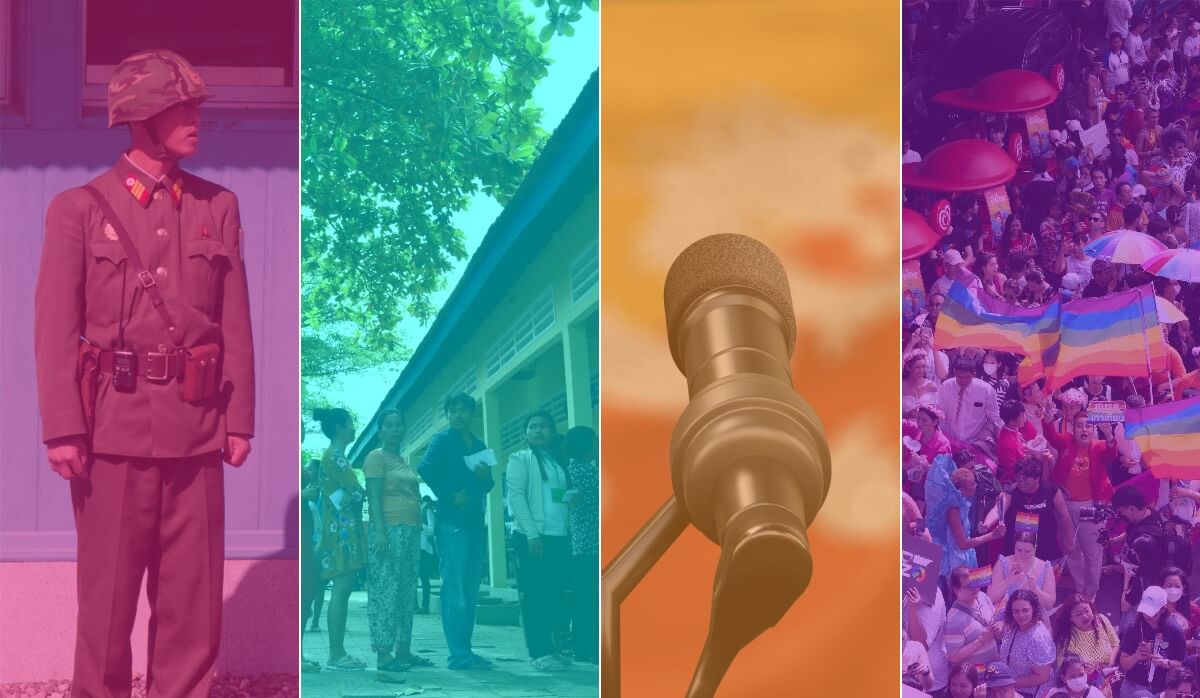|
Getting your Trinity Audio player ready...
|
NORTHEAST ASIA
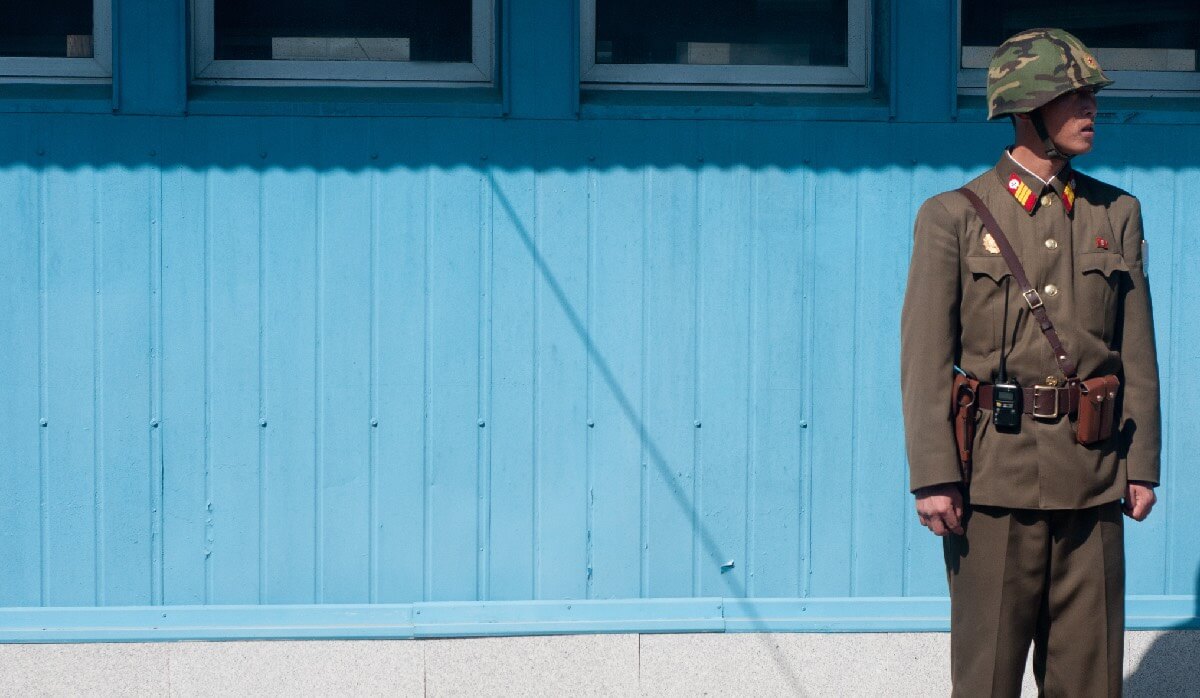
A tireless call for freedom
South Korea has renewed its calls on North Korea to resolve issues of detainees, abductees, and prisoners of war following the U.N.’s adoption of a resolution denouncing its egregious human rights violations early this month.
On April 5, Kim In-ae, deputy spokesperson for the unification ministry in charge of inter-Korean affairs, told reporters that Seoul was “deeply concerned over systemic, widespread and grave violation of human rights that continues in North Korea.”
“[We] urge the North to take measures to enhance human rights according to the resolution,” she said.
South Korea played a key role in crafting the resolution on North Korea’s human rights record, passed at the 55th session of the U.N. Human Rights Council in Geneva. It’s the 22nd straight year the resolution has been adopted, highlighting both the international community’s continuous pressure since 2003 and the North Korean regime’s resistance to international scrutiny.
In response, Pyongyang’s vice foreign minister for international organizations Kim Son-gyong slammed the resolution as “nothing but a politically motivated fraud document.”
North Korea is accused of a range of human rights violations from systematic repression of freedom of thought, religion and association to the abduction and detention of both South Korean residents and other nationals.
The latter is an especially contentious issue, as government data estimate that 516 out of the 3,835 South Koreans kidnapped by North Korea after the 1950-53 Korean War have yet to be returned. Japan has officially recognized 17 abductees and there are unverified reports of other foreign nationals.
Six other South Koreans, including three pastors – Kim Jung-wook, Kim Kuk-gi and Choe Chun-gil – have been detained in North Korea for years, with their whereabouts or fates unknown.
Human Rights Watch (HRW) considers the resolution to be the most ambitious yet since 2016, when the UNHRC created a team of experts to identify “practical ways” to hold North Korean rights violators to account.
Apart from renewing the mandate of the U.N. special rapporteur on North Korea (officially the Democratic People’s Republic of Korea), the 2024 resolution also requests the Office of the U.N. High Commissioner for Human Rights to produce its first comprehensive report on the situation since the Commission of Inquiry’s landmark report in 2014.
SOUTHEAST ASIA
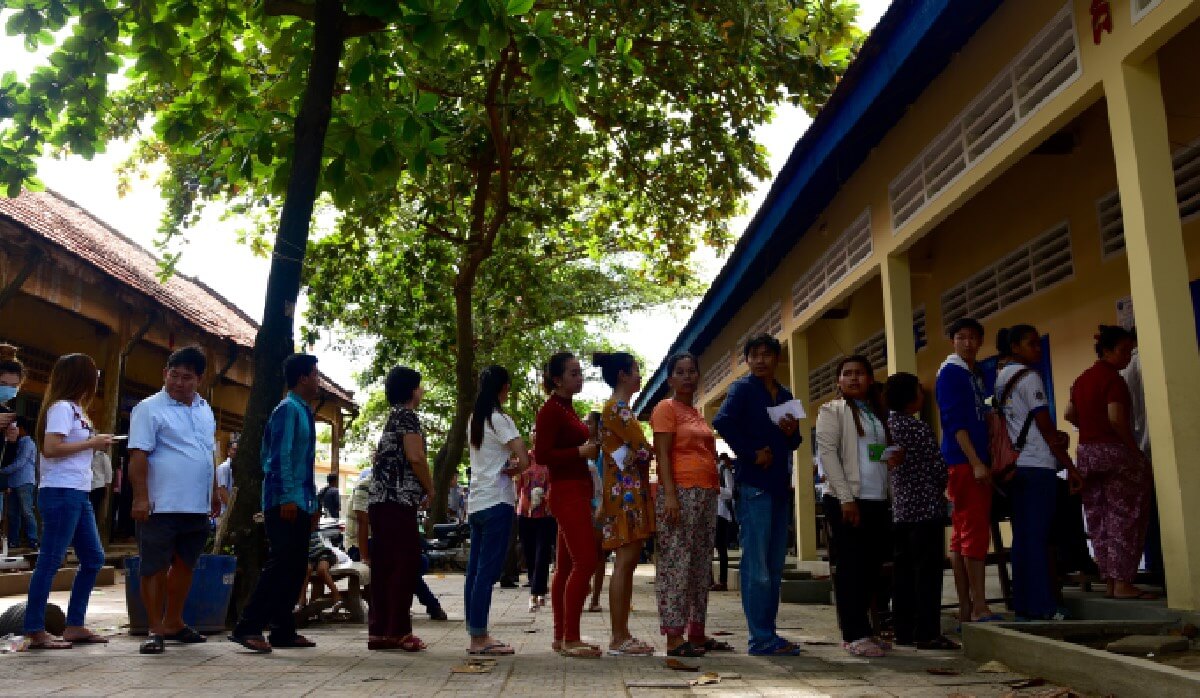
Stop dismantling the opposition
Cambodia’s donors should call on Prime Minister Hun Manet’s government to “seriously and transparently investigate” all interference related to the Feb. 25 Senate elections and the targeting of opposition councilors and activists, Human Rights Watch (HRW) said, following a damning report indicating that the recent polls were tainted by threats and bribes to ensure a win for administration candidates.
The report published on April 3 detailed how government officials harassed and intimidated members of the opposition Candlelight Party (CLP) to either vote for the ruling Cambodian People’s Party (CPP) or simply not vote at all.
In the lead-up to the last elections, four opposition members were arrested between Jan. 15 and 31 for “forgery crimes1” – the same charges brought against opposition CLP members in the May 2023 assembly elections.
- Khem Chanvannak, acting head of CLP’s Phnom Penh operations, arrested Jan. 15, 2024
- Chhay Chinda, CLP official for the party’s women’s wing, arrested Jan. 15, 2024
- Ma Chinda, head of CLP youth movement in Daun Penh district, arrested Jan. 31, 2024
- Hak Kosal, opposition activist, arrested Jan. 31, 2024
These allegations, said Elaine Pearson, Asia director at Human Rights Watch, “raise serious concerns that Cambodia’s Senate elections were neither free nor fair.”
“Cambodia’s partners should publicly condemn these politically motivated harassment and threats, and make it clear to the government that future engagement depends on the opening of democratic space in the country,” Pearson said.
These incidents appear part of a broader trend of shutting out CLP members – via force or intimidation – from Cambodia’s electorate process, which started under then long-ruling Prime Minister Hun Sen. In 2017, the then main opposition party, Cambodia National Rescue Party (CNRP), was dissolved over charges of plotting to overthrow the government, while over 140 of its members were arrested.
In 2023, CLP was disqualified in the July elections over a registration technicality, allowing then long-ruling Prime Minister Hun Sen’s CPP to sail through the polls virtually uncontested.
Such policies have continued under now Prime Minister Hun Manet, Hun Sen’s son, whose less-than-a-year-old administration has seen the arrests and sentencing of more opposition figures.
Neil Loughlin, assistant professor in comparative politics at City, University of London, told DW the dismantling of CLP “has left little in the way of meaningful, organized party opposition in the country.”
_________________________________
1Articles 627-629 of the Criminal Code states that forgery is punishable by one to three years in prison and a fine of 2 million to 6 million riel (US$494 to US$1,484) while forgery of public documents could result in jail terms of 5 to 10 years.
SOUTH ASIA
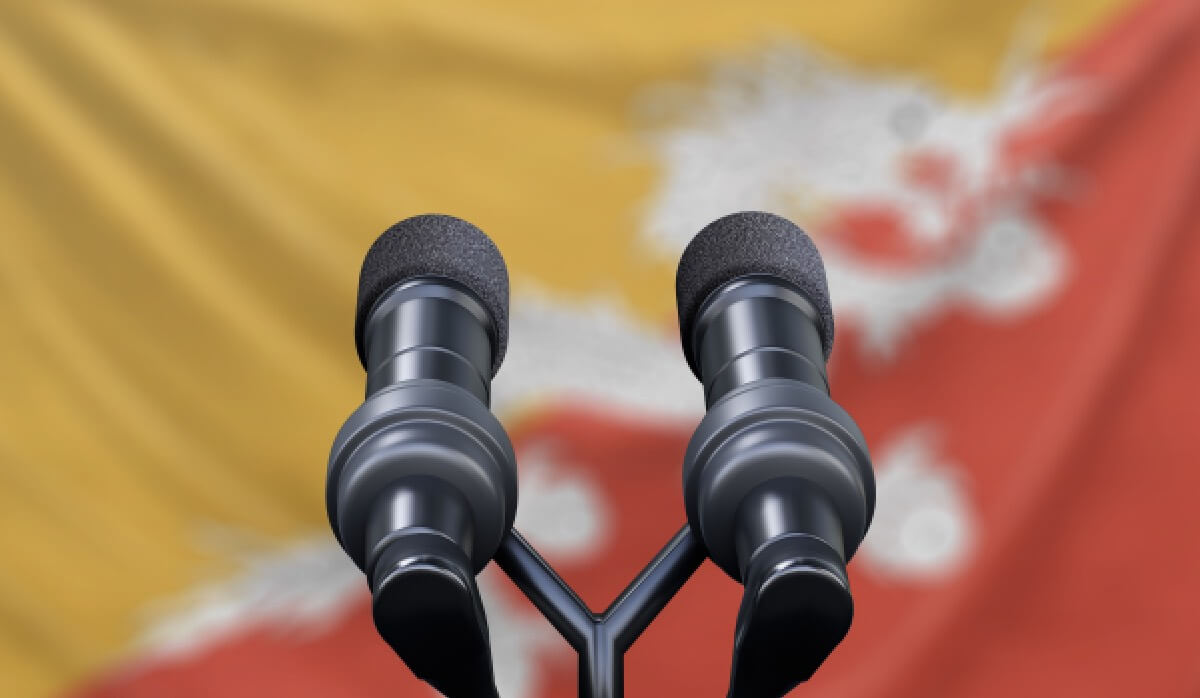
Affirming the right to information
A Bhutanese media group has called on the government to improve freedom of information in the country, following a report saying that 64 percent of local journalists requesting information have been refused by authorities.
Bhutan Media Foundation (BMF) recently published its State of Journalist Survey 2023 report outlining the current state of journalism in Bhutan, especially in terms of journalists’ safety and access to information.
The report found that over a third of journalists (64 percent) often have their requests for information refused mostly because of the lack of clear government mechanisms to provide information. Focus group discussions with journalists also cited the general reluctance of public officials to share information especially with younger reporters, purportedly because of lack of trust and confidence in their competence.
Most of the time, the respondents said, the focal persons for information “either do not have adequate information or do not have authority to share the information they hold.”
The Bhutan Constitution guarantees freedom of the press “and other forms of dissemination of information, including electronic” as a fundamental right without any stipulation on segments of the media that should be given priority in terms of information access.
Reasons cited for refusal of information
But the lack of freedom of information in Bhutan, BMF argued, was the “fundamental dilemma of free journalism” in the country and helps explain why its press freedom ranking slid sharply from 33 in 2022 to 90 in 2023.
In its 2023 report for Bhutan, Reporters Without Borders said that the royal bureaucracy “perpetuates a culture of secrecy and distrust of the press that ends up depriving the population of information of public interest.”
Several editors and reporters who spoke with The Bhutanese last year lamented that the government regularly changes its rules and protocols on freedom of information, making it difficult to access information while compelling many of them to simply drop their stories.
“Given the insurmountable obstacles to access information, the importance of the right to information (RTI) act is self-evident. Successive governments in the country have shown limited political will to enact this important legislation. It has severely compromised the access to information in Bhutan,” the BMF report said.
The report appealed for “standardized information sharing procedures” so that journalists can readily access information. Refusals, they said, should also be backed by written reasons.
GLOBAL / REGIONAL
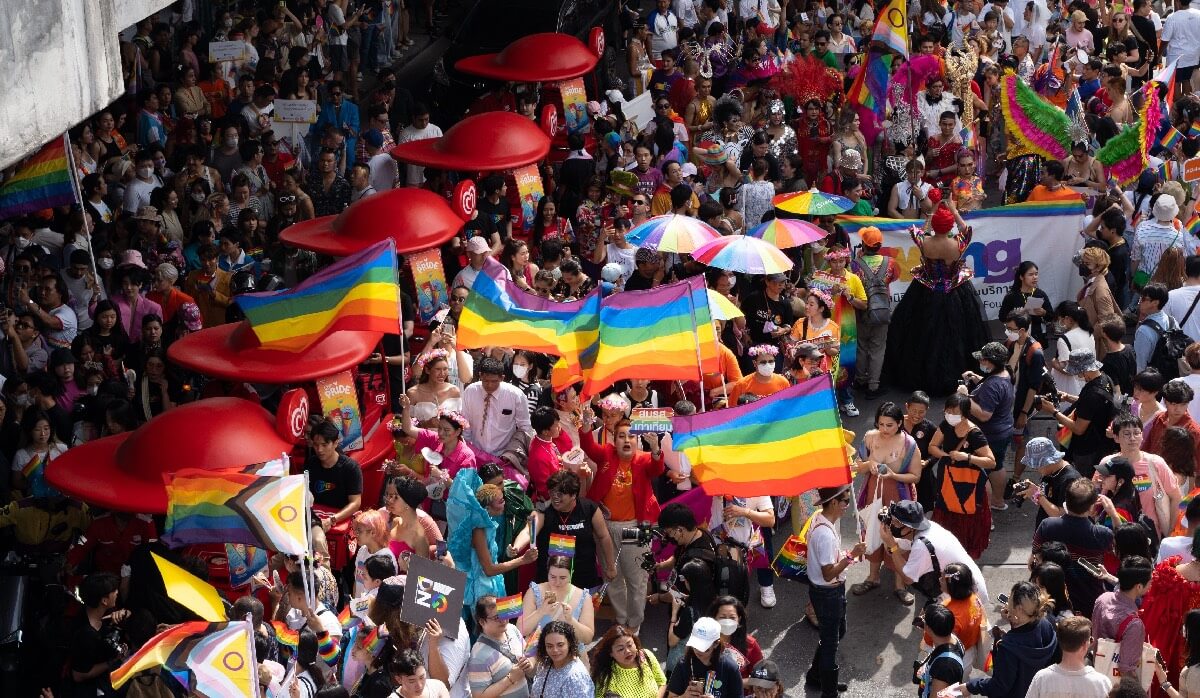
Protecting ‘invisible’ intersex people
The U.N. Human Rights Council (UNHRC) took a historic step towards protecting intersex people after it passed the first-ever resolution specifically addressing discrimination, violence, and harmful practices against intersex people.
On April 4, the 47-member council adopted a resolution titled “Combating discrimination, violence, and harmful practices against intersex persons,” which emphasizes the right of intersex people to their bodily autonomy and urges its member states to affirm this right.
The resolution emphasizes tackling the root causes of this discrimination, including stereotypes, misinformation, and stigma surrounding intersex variations; as well as ensuring intersex people have access to the highest attainable standard of physical and mental health.
It also mandates a global report on human rights violations against intersex people to gather more data and raise awareness.
Advocates call the resolution a huge victory for the intersex community, who are born with sex characteristics that do not fit typical binary notions of male and female bodies.
At least 1.7 per cent of the world’s population is believed to be born with intersex traits, and they often suffer from various rights abuses such as infanticide, invasive medical interventions like forced sterilizations, discrimination in schools, sport and employment, as well as lack of legal recognition.
Because of the lack of awareness about the community, intersex people remain largely invisible especially in Asia, where conservative practices and beliefs about gender still hold sway in many parts of the region. Even intersex people themselves struggle to know more about themselves because most information is available only in English.
In Asia, only Bangladesh, Nepal, and India grant legal status to people who identify in the third sex, often as transgender or intersex.
“This is a great moment for the intersex community, but we still have a long way to go,” said Dr. Morgan Carpenter, Executive Director of Intersex Human Rights Australia (IHRA) and a bioethicist at the University of Sydney School of Public Health. “We are calling for the same rights as everybody else. It’s about the universality of human rights, including the rights to bodily integrity and bodily autonomy, and freedom from harmful practices.”
“It’s an opportunity to correct myths and ensure that children born perfectly healthy – just a little different – are free to grow up and make decisions about their own bodies,” echoed Human Rights Watch (HRW).










